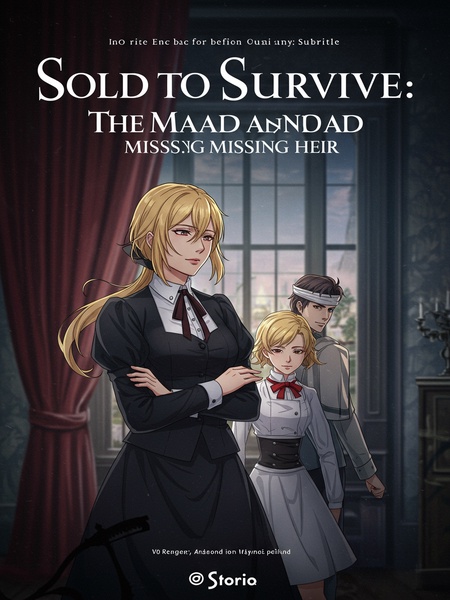Chapter 7: Building a Life
"Mr. and Mrs. Westfield, please don’t blame the oldest daughter. I took Pearl to the Sullivan family, but she wasn’t there that day. I heard she’d just had a baby and was still recovering. The Sullivans were afraid of upsetting her and didn’t tell her the truth. Mrs. Westfield sent someone to find me, saying that for her sake, I must not bring Pearl there again."
I watched Mrs. Westfield’s face as I spoke, hoping she understood I’d tried my best. Some things just weren’t meant to be.
“A few days later, the Sullivans moved to Boston. Even if the oldest daughter wanted to see you, it’s a long way, and she has a baby—how could she come back?”
Boston was a world away. In those days, leaving meant you might never come back. I could only hope she’d be safe, raising her child far from the city’s troubles.
There were things I didn’t say. The oldest daughter fainted from crying twice after hearing what happened to the Westfields. Her husband carried her onto the train while she was still unconscious.
Sometimes I wondered if it was better not knowing the truth, if distance could really protect her from the pain. I kept those thoughts to myself.
We’re all just regular people. At a time like this, who could blame her for wanting to protect herself?
When you’ve got a baby to care for, you put your head down and do what you have to. There’s no shame in surviving.
After a few words, our time was up. I had to take Pearl away. She cried, wanting to take the whole family with her. I coaxed her again and again before I could bring her out.
Her little hands clung to the bars until the guard gently pried her fingers loose. I wiped her tears with my sleeve, promising we’d come back soon.
But she kept crying, asking why she couldn’t see her oldest brother.
Her voice echoed in the stairwell, and I tried to shush her, but she wouldn’t let it go. It broke my heart.
There were legends about the oldest son all over the house: not only was he strikingly handsome, but he’d also been valedictorian and was the favorite student of an old professor at the university. People said he was destined to be a senator someday.
The stories grew bigger every time someone told them—how he’d won debate championships, aced every test, and shook hands with mayors. He was the family’s pride and hope.
I didn’t know about the rest, but he really was good-looking—his mom had been a beauty herself.
Even in faded family photos, you could see the resemblance—a strong jaw, sharp eyes, a presence that drew people in.
Now, such a person was missing, his fate unknown.
I wondered where he’d gone, what he was doing, if he ever thought about his family locked away.
Mr. Westfield said nothing. I knew not to ask and took Pearl home.
His silence was heavy, and I carried it with me as we walked back, Pearl’s hand tight in mine.
We rented a small place with others on East Street. Pearl and I arrived early and took two rooms on the east side, one to live in and one as a kitchen.
The building was drafty and the wallpaper peeled in the corners, but we made it home—hung a calendar on the wall, put fresh sheets on the bed. I even found a cheap rug at the thrift store to warm the floor.
The three west rooms housed a family of four. The man, Mr. Harris, was a street peddler, his wife stayed home with their kids.
Mr. Harris wore a battered Reds cap and called everyone “pal” whether he liked them or not. Mrs. Harris was quiet but kind, good with her hands—she embroidered handkerchiefs and sachets, which her husband sold.
Sometimes I’d see her bent over her embroidery hoop, her fingers moving so quickly it seemed like magic. Her kids would nap at her feet, curled up like kittens.
I could sew clothes and shoes but knew nothing about embroidery, so I had Pearl learn from Mrs. Harris when she had free time. Pearl was patient and quick to learn. The leftover fish and shrimp I brought home were mostly eaten by Pearl and Mrs. Harris’s two kids.
Pearl would sit at the table, tongue poking out as she worked a needle through the cloth, her laughter mixing with the Harris kids’ giggles. Their friendship was simple, sweet.
Life went on as usual, except the river had frozen, so I had to stop my business. Some old customers missed my cooking, so I made food at home and delivered it to them. After dinner, Pearl would get sleepy. When she fell asleep, I’d work by the lamp, stitching shoe soles.
The apartment would fill with the smell of stew, and after Pearl drifted off, I’d light a candle and stitch by its flicker, my hands rough but steady.
The space heater burned wood, making a lot of smoke, so I left a crack in the window. Before bed, I’d put out the fire and let the air clear before closing up.
Winter nights were cold, but I made sure Pearl was warm—sometimes sneaking her into my own bed when the drafts got bad.
I was already fifteen, considered grown wherever I went.
People spoke to me like I was an adult, but inside, I still felt like a kid playing at being strong.
Continue the story in our mobile app.
Seamless progress sync · Free reading · Offline chapters